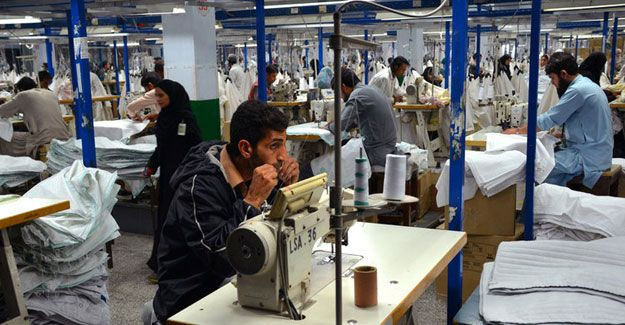
Pakistan’s Textile Sectors Up In Arms Against Newly Enacted Tax Regime
A near tug-of-war has resulted between the Imran Khan led Pakistan government and the textile sector. Other industrial sectors including sugar and cement have also joined them according to reports. The Pakistani government has recently taken a slew of measures recently in their budget for 2019-20 financial year which aims to increase tax to GDP ratio as well as come out of the economic turmoil they country is in. Among the measures that the industrial sectors feel went against them are increase in customs duty, increase in minimum wage, increase in excise duty and removal of zero tax rated benefits. The textile sector which is a major contributor to Pakistan’s GDP and export earnings is expected to get hurt the most as zero-rated tax status has been removed. Pakistan Government has abolished zero tax regime for all the five export oriented industries that include textile, leather, carpet, surgical goods and sports goods. The industry sector of Pakistan has been facing severe challenges due to high currency depreciation (about 45%), doubling of interest rates, lower consumer spending and so on while the Government has further increased custom duties across the board. Also, the 10% tax credit which the industry receives for capacity expansion and modernisation of their plants is going to be withdrawn as well. The turnover tax has also been increased in an attempt to grow the tax collection coffers. According to Pakistan’s Federal Board of Revenue (FBR), the government aims at procuring a tax basket of Rs 516 billion for the fiscal year 2019-20. At the same time, the government has also decided to put an end to Rs 300 billion tax exemptions offered to various industrial sectors. The government announced that it plans to meet the remaining tax target through administrative measures. In line with that, Pakistan government has proposed increase in the tax rate for services sector from 2% to 4% of the gross turnover amount. These moves have however, generated stiff resistance from the industrial bodies with the All Pakistan Textile Processing Mills Association (APTPMA) taking the lead in giving a shutter down call. The APTPMA in Karachi pronounced a death knell situation for the textile processing mills for both the wholesalers and retailers due to flawed government policy. They fear that entire production has ground to a halt following the end of zero-rated regime for the textile sector. In addition, the association bemoaned the imposition of 17 to 20 percent sales tax. In an emergency meeting that was held recently, APTPMA Chairman Mohammad Arif Lakhani said, “Our textile industry sector has been forced to shut shop and don’t take it as if we all have gone on strike. The problem that has engendered this situation is being forced on us as our customers have stopped sending any work of dyeing and printing. This has rendered thousands of our workers jobless.” An APTPMA release stated, “The meeting unanimously passed a resolution demanding an extension for sales tax implementation on CNIC basis besides continuing SRO1125 and zero rating till July 31.” The association further said, “We have asked the government to find a solution for sales tax issue by July 31 after holding negotiations with dyeing and weaving sectors along with textile retailers and wholesalers. Contrastingly, the APTPMA body in Faisalabad has declared all shutters down till the new taxes are withdrawn. The shutdown of the mills has dire implications and amounts to the entire Pakistan Textile industry coming to a standstill.
Textile Excellence
If you wish to Subscribe to Textile Excellence Print Edition, kindly fill in the below form and we shall get back to you with details.













